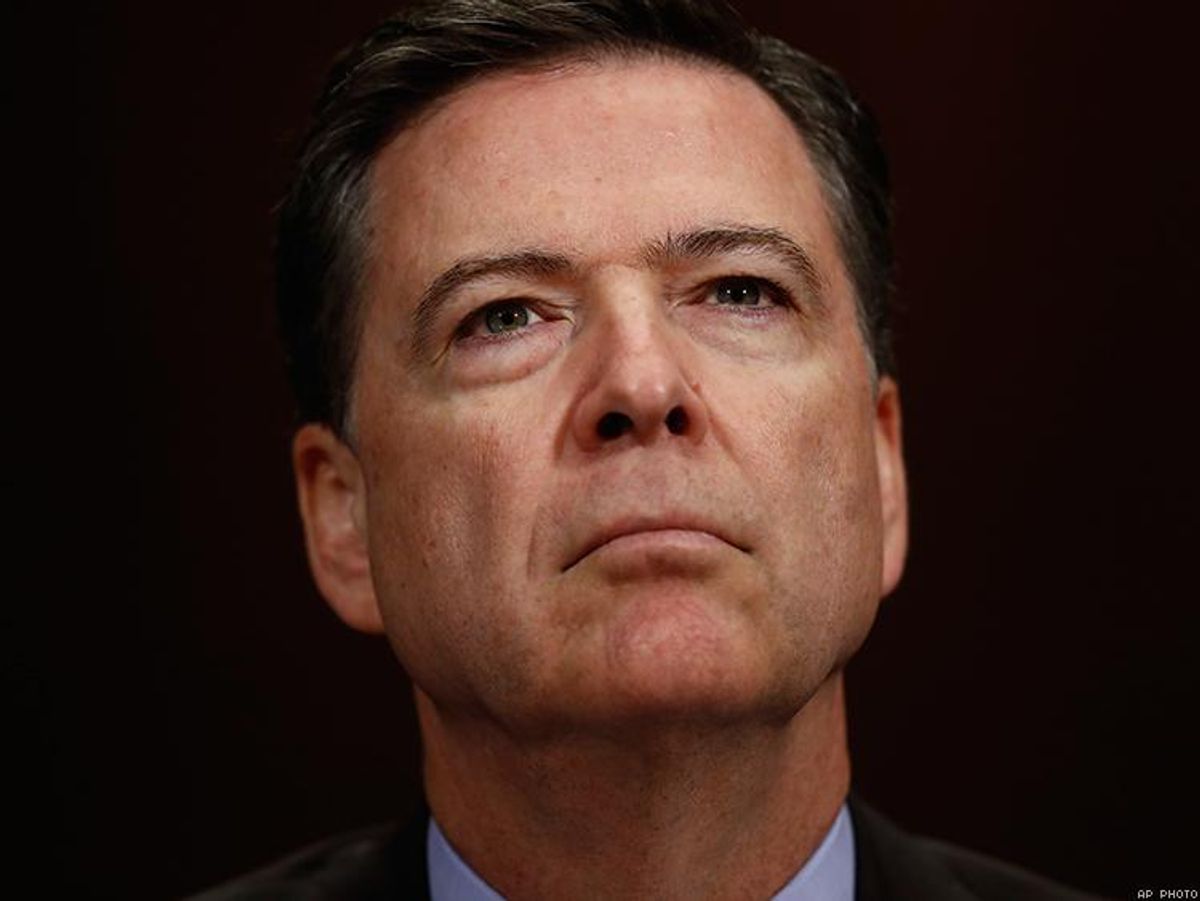The director of the FBI defines the bureau that he -- or maybe someday, she -- leads. It is the director's vision of the bureau that guides one of the most powerful agencies in its nonpartisan mission as the federal government's investigative agency. Independence is vital to that mission. James Comey's firing by President Trump threatens that independence like never before.
Only once before has an FBI director been terminated by a president -- when Bill Clinton fired William Sessions in 1993. That action was not taken by President Clinton to interfere with an ongoing counterintelligence investigation. Sessions had improperly used a government airplane for personal purposes and had a security system installed at his home on the government dime. Comey was far from perfect, but he was independent, and that independence is what got him fired. Now who will take the helm at the FBI next?
More than the Trump-Russian investigation is involved here. Until you've seen it from the inside, you really have no idea how powerful the FBI is and how much the director determines the character of the bureau. If Trump appoints a director not accepting of the LGBTQ community, we are in trouble. The FBI director reports to Attorney General Jeff Sessions, a longtime enemy of our community. Meanwhile, Comey discovered he was fired while leading a talk in Los Angeles on diversity in the bureau. We might find ourselves missing James Comey very much.
After the news broke Tuesday, an event that occurred toward the end of my tenure as an FBI agent came to mind.
I was living at the edge of Brooklyn Heights with my girlfriend, who had come with me from Boston when I was transferred to the FBI's New York field office. I had a minor run-in with the female neighbor who lived in the apartment below us. She knew I was an FBI agent because our landlord had told her. About two weeks later, a letter from a congressman arrived at the New York field office that outed me.
My neighbor had told her mother about me, and the mother had some influence with this congressman. I was called into the assistant special agent in charge's office. My immediate supervisor was there too. He didn't like me. I had graduated from Boston University School of Law and passed the New York State Bar exam the first time I took it. He had flunked out of law school. He wanted to read me my rights.
The assistant special agent in charge told him it wouldn't be necessary to read my rights and informed me about the letter. It seemed the assistant special agent found the letter distasteful and wanted to minimize it. I was doing well as a young agent; I had received some attention from Washington for a minor counterintelligence undercover assignment. I had survived my first performance review from inspectors from D.C. headquarters; I was not a problem for the assistant special agent and was doing better than expected. When he got to the part about me being gay, he said it wasn't necessary to address that. I wasn't going to be asked to confirm or deny to the FBI if I was indeed a lesbian, at least not now. My supervisor was disappointed, and I knew he wanted the question asked. If I said yes, I was gone. If I said no and they later proved I was, then I had lied to the FBI.
About a week later, a big honcho from the special agent in charge's office walked through our squad. A fellow agent told me they wanted to get a look at me. He told me I was marked and internal investigations was probably surveilling me. I couldn't risk him being right. Yes, I was marked for numerous reasons and decided it was time to go.
In reflecting on all this, I see how an FBI supervisor's personal outlook affects the way that person will wield the considerable power of the bureau. The assistant special agent wanted to allow me to continue in my job. My immediate supervisor wanted to see me fired or jailed. Someone in the special agent in charge's office wanted to pursue the matter. Leadership matters.
Comey is a complex, confusing man, but I never feared the power of the FBI with him at the helm. I was indeed critical of Comey, but I -- like many others -- do not believe Trump will appoint an impartial director of the bureau. In fact, Trump's new director might just come for us. He or she will certainly have the support of our attorney general, our Republican Congress, and our president if it serves his personal interests at any given time.


















































































